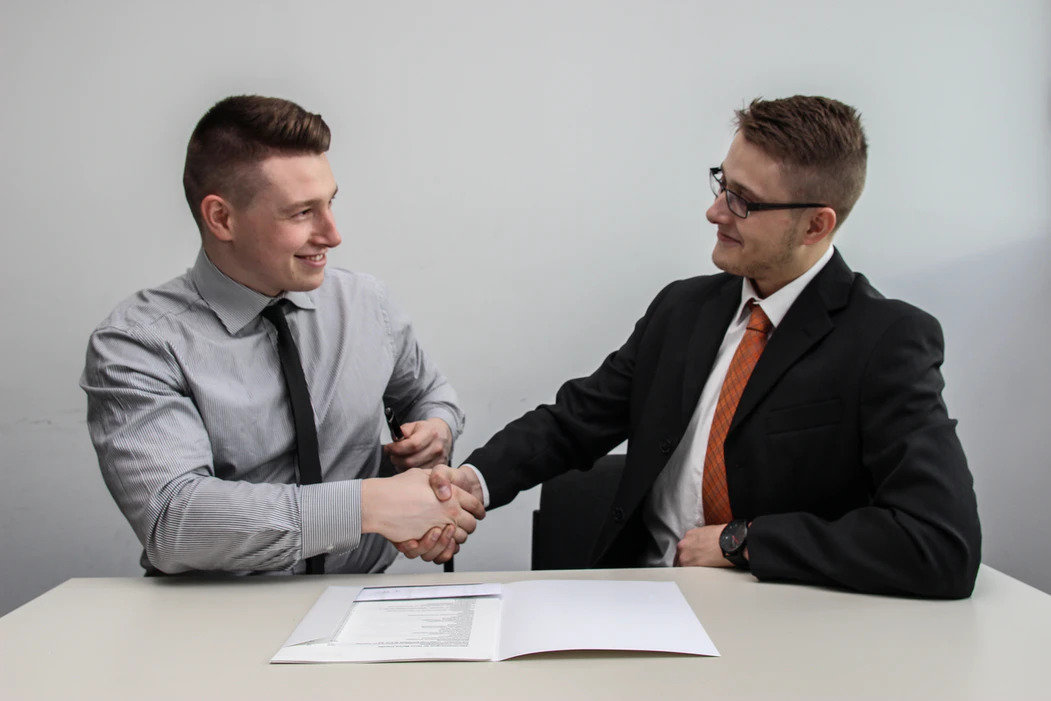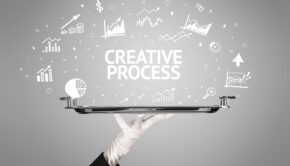How To Be A Good Interviewer
Job interviews are never easy. Both sides need to make use of a certain set of skills in order to get the most out of each interview. Potential employees, of course, need to go through a nerve-racking process of proving that they are indeed a good candidate for the job.
Interviewers, on the other hand, need to be able to establish a comfortable atmosphere, and extract the most amount of valuable information about the candidate, such as their skills, and experience.

Image source: https://unsplash.com/photos/FX2QA0TMEYg
Without preparation both parties run the risk of looking indifferent, even though that might not necessarily be the case.
Luckily, there’s a whole checklist of things an interviewer can do in order to prepare for the meeting. And today we’re going to discuss all the things you can do to become a better interviewer, and increase your ability to find talent for your office.
Let’s start with the most obvious preparations and gradually delve into the deeper intricacies of interviewing.
Read The Candidate’s Resume And Cover Letter
This is probably the most basic advice you can give to interviewers, and if you’re super-busy, it might be tempting to skip over the resume and go straight into the interview, but it can actually save you some precious time during the interview as it already has answers to some of your questions.
Besides, getting to know a little bit more about the person you’re going to interview also allows you to prepare your questions more thoroughly. Having a more personalized approach to each interviewee instead of just asking everyone the same things will make the candidates feel like you’re actually interested in them and what they have to say.
It should go without saying, but if you’re hiring a creative (video editor, designer, writer, web developer), be sure to review any work samples that were included with the resume.
It is also a good idea to print out a copy of your candidate’s resume and job description and bring them with you for reference.
Determine The Most Important Qualities You’re Looking For
This goes beyond having a higher education and candidate experience in the field. Of course, having a bachelor’s degree is a big plus for any interviewee, but in reality, it doesn’t actually change anything about the way they work.
The same goes for personal qualities. Being shy is often viewed by a negative quirk by hiring managers, but does it actually have an impact on that person’s abilities? Of course, a public speaker or social media manager needs to have excellent social skills. But does it really matter if you’re hiring a developer?
On the other hand, some of the most important qualities any employee needs to have are critical thinking, initiative, and, obviously, the skills relevant to the job.
Also, it is important to focus on your candidate’s actual experiences rather than asking them about vague situations like “How do you work under pressure?”. Of course, anybody would answer that they always do their best even though it can be psychologically taxing.
Instead, you could ask your interviewee about the biggest time-sensitive project they have ever worked on, or the piece of work that they’re most proud of.
Be Friendly
This might not seem like much of an advice, but trust me, a simple smile can go a long way, even in a professional environment. It might not be your only interview that day, but the candidate might be really anxious about the talk, so the more comfortable they are during it, the better.
Not only will they be able to answer your questions without getting lost in awkward silence, but they will also not be afraid to ask their own questions, which is equally as important as answering yours.
In addition, during the interview, you will be speaking on behalf of your whole company, and chances are your interviewee has never met any of your colleagues, so it is important to establish a friendly atmosphere. The candidate needs to feel like you care about them, even if you might not intend on actually hiring them, and your behaviour during the interview will be one of the biggest factors making up your company’s image in their eyes.
Speaking about eyes, eye contact is also very important for establishing a better connection between you and the candidate, and building a more comfortable interviewing process.
Introduce Yourself
This ties in directly with the last tip. By introducing yourself, your team, and your company to your candidate, you will be breaking the ice between you, and even though you’re still pretty much complete strangers, you both will feel like you know at least a little bit about each other.
Tell them about your company, what your values are, how you operate and what exactly you’re looking for.

Image source: https://unsplash.com/photos/NbtIDoFKGO8
If you’re interviewing multiple people at once, reserve some time for everybody to introduce themselves. It’s a very simple thing, but it helps people get a lot more comfortable around each other, even if they might never see each other again.
Mute Your Phone
It wouldn’t make a good impression if your candidate’s mobile device buzzed with notifications every five minutes. But the same applies to you!
Muting your phone works in two ways: obviously, an uninterrupted interview shows that you value your and your candidate’s time, and is a sign of respect.
But the not-so-obvious benefit of this is that it actually allows you to focus completely on this interview alone. Calls and notifications distract both of you from your task, and you might forget some of your questions, or even run out of time to ask them.
Don’t Rush It
Speaking of time, even though it’s probably not your only interview that day, it’s a good idea not to schedule another one right after. Sure, a 30 or so minute window is usually enough to discuss everything you wanted, but some people might have more questions than others.
They also might have much more to say than other candidates, so it’s wise to leave some free time in between your interviews, just in case.
Darshan Somashekar, the founder of brain training app Unscrambled Words thinks it’s very important to give a candidate proper time in an interview. “Even if you know the person is likely not going to be a good fit, they went out of their way to apply and take time out of their day to interview with you. If you rush the interview, you may leave a bad impression which can hurt you down the road. I never try to speed through an interview out of respect”.
Let Them Ask Questions
The candidates are just as curious to get to know you and your company as you’re curious about them. This especially applies to industry professionals who could be contemplating multiple positions at the same time, so it is in your best interest to give them all the information they need in order to avoid risking losing great talent to other businesses.
Take Notes Objectively
During some interviews, you can tell from the very beginning if somebody is a good fit for your team or not. But still, if you haven’t already, you need to include taking notes into your interviewing routine.

Image source: https://unsplash.com/photos/OQMZwNd3ThU
It’s extremely important to keep them as free of biases as possible, so you can make thoroughly weighted decisions later on. Try to write down your candidates’ answers instead of your interpretations of them.
For example, instead of noting that “they lack experience”, you should write down that “they said that they have never worked on a project of such a scale before”, which is, obviously, a very different thing to being actually inexperienced.
It is a common practice to take notes about the candidate’s body language, but you shouldn’t focus on that too much. Each person’s body language is different, and scratching one’s nose doesn’t always mean that they are not confident or anxious.
Ask The Right Questions
Every position requires different skill sets, perks, and qualities, so it is very important to plan out the list of questions you’re going to ask accordingly.
Sales interview questions require even more planning out than job interview ones.
Try to implement a healthy mix of generic interview questions like “How would you describe yourself”, and “Why should we hire you?” with some more situational and problem solving questions like “How do you perform under stress?” and “How do you handle conflict in a workspace?”.
This will help you get a better idea of not only your candidate’s skill set, but also of their behavior in unusual situations, as well as their critical thinking.
Scorecard templates are a very convenient way of keeping track of your questions and making notes, so keep those at hand.
Be Sure Ask Follow-Up Questions
It’s important to stick to your structure and ask all of the questions you have prepared for the interview. But every person’s experience is different, so it’s equally as important to improvise on the fly.
Even if you have prepared some unusual questions, chances are that your candidate has prepared their answers to most of them. Besides, it’s impossible to really get to know how a person thinks and works by asking everyone the same set of questions.
So, for example, after they tell you about their biggest project, it’s a great idea to follow-up with a question like “What was the most challenging thing about it?”, “Was it successful?”, or “If you could go back in time, is there something you would do differently?”.
Additionally, it’s a healthy practice to send a follow-up email after the end of the interview.
Employ A Working Exercise
Of course, hiring managers tend to get biased towards applicants with an outstanding resume and great social skills during the interview. But the most important side of any employee is still how they work, especially under stress.
Trust is a beautiful thing, but you can’t just hire people just because they say they’re a good fit for your team.
So, it is very much a healthy practice to run some sort of an exercise during an interview. Of course, a short test is nothing like the actual work candidates will have to do, but it will still give you a pretty good idea of how they handle the key aspects of the position.
For example, when I was applying for a localization quality assurance position at a testing company, they had two exercises. First one was about finding spelling and grammar mistakes on a sheet of paper. The second one involved using an intentionally bugged piece of software to look for more advanced errors, such as truncated and misplaced text, placeholders left by the developers, compliance errors, and so on.
Structure Your Job Interviews
And follow it during each one. Having a clearly defined structure to follow not only makes it easier to keep track of your questions, but also helps keep them relevant to the job offer.
It’s easy to go off-track without a plan to refer to, and wasting time discussing irrelevant topics is the last thing you need, especially when you only have a half-hour window to talk. Here are a few steps of a simple structured interview:
- Greetings/Introductions;
- Small talk to ease the candidate in;
- General questions, both about you and the candidate;
- Role-specific questions;
- Wrap Up;
- Evaluation, both of the candidate and how you held the interview.
Develop A Universal Rating System
When evaluating your candidates, it’s important to rate every person on the same terms. It doesn’t need to be complicated, a simple “low” to “high” scale will work just fine and make it much easier to review all of your applicants to see who’s the best fit for your company.
A single rating system also helps eliminate the halo effect. In other words, people naturally tend to be biased towards people they like, and if you’ve had a pleasant experience with a great candidate, it doesn’t always mean that they are indeed the best person for the job.
Don’t Interview Alone
It is best when multiple people are working on the interview process. This helps get rid of bias, and brings a fresh perspective to the interview. If it isn’t possible, it is still a great idea to review the results with your co-workers, or at least discuss the best candidates together.

Image source: https://unsplash.com/photos/HJckKnwCXxQ
Don’t rush to make the final decision based only on your own thoughts, and don’t be afraid to seek advice from more experienced team members or hiring managers.
Don’t Be Afraid To Learn
Speaking of seeking advice, your job as a hiring manager doesn’t end once a candidate joins your team. To improve your skills and chances of hiring the perfect applicants, you need to constantly evaluate not only your candidates’ performance during the interviews, but also your own.
Keep your notes! By looking through them every once in a while you can spot tendencies, such as people frequently getting nervous on certain questions, whether there have been any awkward silence moments during the interview, or if you haven’t been able to quickly think of a follow-up question.
There are tons of online courses, tutorials, and guides (such as this one) that can help you become a better interviewer. With time, we all become so used to our work that we start doing it automatically, sometimes forgetting about some crucial aspects. So, it is very important to freshen up your skills from time to time!
If you have the option to attend an interview training or workshop, by all means, do it. Even if you think you’re a great interviewer, there’s still a lot you can learn from more experienced recruiters.
Take An IAT Test
I’ve already mentioned that biases are an interviewer’s worst enemy, and in order to be the best interviewer possible, you need to identify what personal biases you have, and learn how to combat them.
Harvard’s Implicit Association Test (IAT) allows you to do just that. After you answer a set of questions about your beliefs and attitudes towards certain things, this test can point you towards your own, personal biases.
By taking that into consideration every time you make a hiring decision, you will be able to improve your judgement and active listening skills, and ultimately become a successful interviewer.
Conclusion
So, to sum it all up in a single paragraph: to be a good interviewer, you need to develop a structure for your interviews, be friendly, establish a comfortable atmosphere, get to know your candidates beforehand, improvise beyond the questions in your script, try to keep it as unbiased as possible, continuously review your own performance as well as the candidates’, and keep learning.
And even though consistently conducting thorough interviews and making truly weighted decisions, there are definitely some practices you can employ to get better at your job.
I hope this article helped you with that!








![How to Start a Business Blog? [Infographic]](https://technofaq.org/wp-content/uploads/2017/09/how-to-start-a-business-blog-150x150.jpg)







